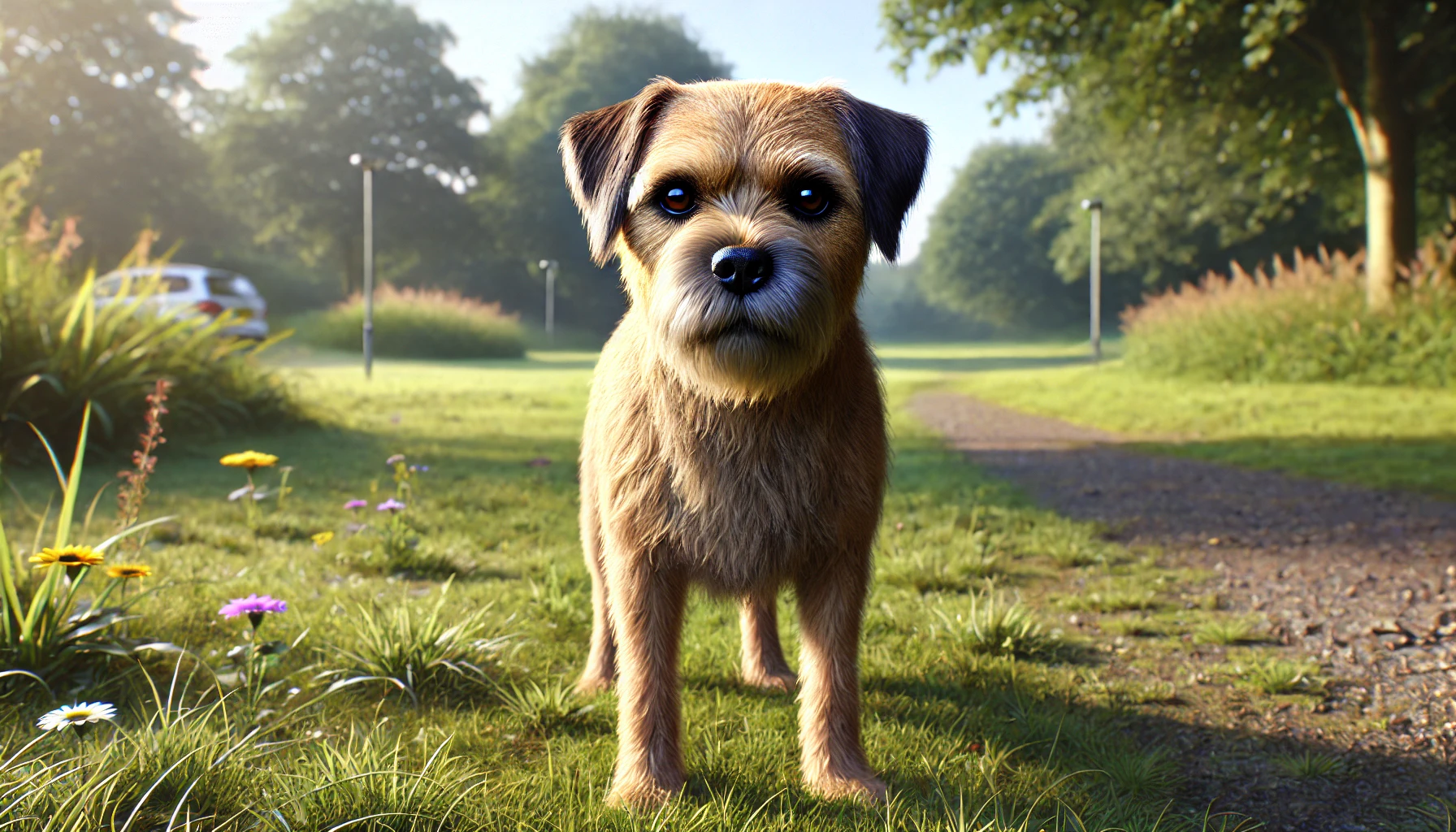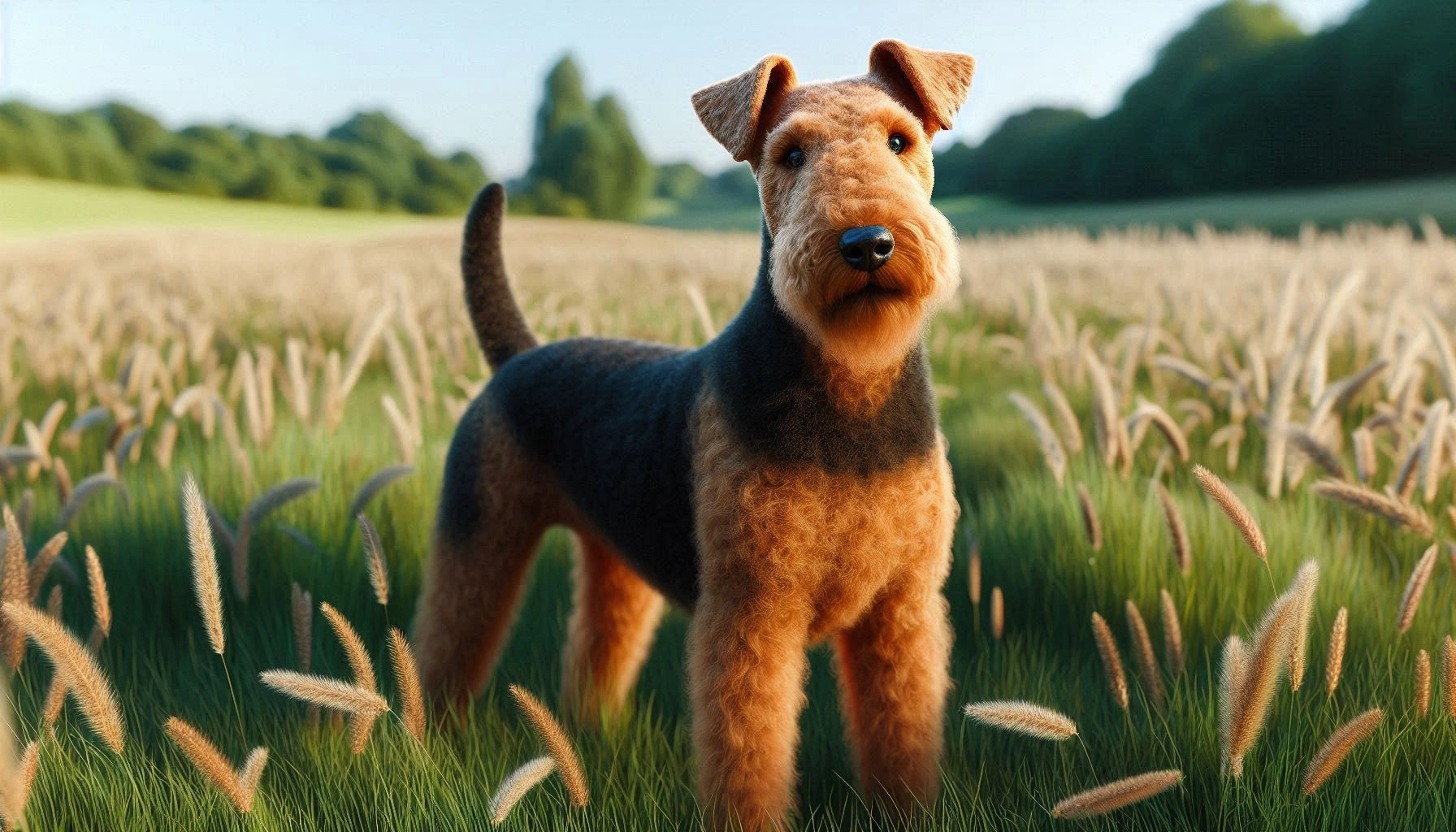Table of Contents
Fox Terrier Dog Breed
The Fox Terrier is a spirited and lively dog breed known for its intelligence, boldness, and boundless energy. With a history that dates back to the 19th century, the Fox Terrier has earned a place in the hearts of dog lovers around the world. Its unique combination of a charming personality, distinctive appearance, and strong hunting instincts makes it a popular choice among dog owners. Whether you’re looking for an agile companion or a feisty family pet, the Fox Terrier could be the perfect addition to your household. In this article, we will delve into the breed’s history, physical characteristics, temperament, health, and much more.
Fox Terrier Dog History and Origin

The Fox Terrier originated in England during the 1800s, developed specifically for the purpose of hunting foxes. Its primary role was to chase foxes out of their dens during hunts, allowing the hounds to take over. The breed was prized for its agility, tenacity, and determination—traits that were essential for a successful fox hunt.
Initially, there was little distinction between the two main varieties of Fox Terrier—the Smooth Fox Terrier and the Wire Fox Terrier. Both varieties share a common ancestry, likely descended from a mix of various terrier breeds such as the Black and Tan Terrier, Bull Terrier, and Greyhound. Over time, the two varieties diverged, with the Smooth Fox Terrier being recognized by the American Kennel Club (AKC) in 1885, followed by the Wire Fox Terrier in 1888.
The Fox Terrier quickly gained popularity, not only for its hunting prowess but also for its lively and engaging personality. It became a favored companion among English nobility and later found its way into the homes of dog lovers across the globe. The breed’s intelligence and charm also made it a popular choice for dog shows, where it continues to excel to this day.
Fox Terrier Dog Physical Characteristics

The Fox Terrier is a small to medium sized dog with a distinctive and elegant appearance. Despite its relatively small size, it is a robust and athletic breed with a well proportioned body and a lively expression.
Size and Build
Fox Terriers typically weigh between 15 to 19 pounds (7 to 9 kg) and stand about 15 to 16 inches (38 to 41 cm) tall at the shoulder. They have a muscular build with a deep chest and a short, straight back. Their legs are strong and straight, giving them a nimble and agile gait that is perfectly suited for chasing small game.
Coat Type and Colors
The Fox Terrier comes in two main varieties: Smooth and Wire.
- Smooth Fox Terrier: This variety has a short, dense coat that lies close to the body. The coat is smooth to the touch and requires minimal grooming.
- Wire Fox Terrier: The Wire Fox Terrier has a dense, wiry coat that stands away from the body. The coat has a rough texture and often forms a distinctive beard and eyebrows, giving the dog a lively and alert expression.
Both varieties typically have a predominantly white coat with black, tan, or a combination of black and tan markings. This coloring was originally intended to make the dogs easily visible during hunts.
Distinctive Features
One of the most distinctive features of the Fox Terrier is its head, which is long and narrow with a flat skull. The ears are small, V-shaped, and fold forward, giving the dog an alert and inquisitive appearance. The breed’s eyes are dark and round, exuding a sharp, intelligent expression that perfectly matches its lively personality.
Temperament and Personality
The Fox Terrier is known for its spirited and energetic temperament. This breed is full of life and enthusiasm, making it an entertaining and engaging companion. However, its lively nature also means that it requires plenty of mental and physical stimulation to stay happy and healthy.
Interaction with People and Animals
Fox Terriers are affectionate and loyal to their families, forming strong bonds with their human companions. They are particularly good with children, often displaying patience and playfulness. However, their high energy levels mean they may be too boisterous for very young children, so supervision is recommended during playtime.
When it comes to other animals, the Fox Terrier’s strong hunting instincts can sometimes be a challenge. They are known to be bold and may not always get along with smaller pets, such as cats or rabbits, due to their natural prey drive. Early socialization and proper training can help mitigate these tendencies, but it’s important to remember that the Fox Terrier’s hunting instincts are deeply ingrained.
Personality Traits
The Fox Terrier is intelligent, alert, and always ready for action. This breed is naturally curious and loves to explore its surroundings. Its independent streak can sometimes make training a challenge, as Fox Terriers may exhibit stubborn behavior if not properly motivated. However, with consistent and positive reinforcement, they can be trained to perform a wide range of tasks and tricks.
Despite their independent nature, Fox Terriers thrive on human interaction and do not like to be left alone for long periods. They are known for their loyalty and will often go to great lengths to protect their family, making them excellent watchdogs. However, their protective nature should not be mistaken for aggression; Fox Terriers are generally friendly and sociable with people they know.
Health and Lifespan
The Fox Terrier is generally a healthy breed with a lifespan of 12 to 15 years. However, like all breeds, they are prone to certain genetic health issues. Responsible breeding practices and regular veterinary care can help ensure that your Fox Terrier lives a long and healthy life.
Common Health Issues
Some of the common health concerns in Fox Terriers include:
- Legg Calvé-Perthes Disease: This is a condition where the femoral head (the ball part of the hip joint) begins to degenerate, leading to pain and lameness. It is more common in small breeds and can be treated with surgery if necessary.
- Deafness: Some Fox Terriers, particularly those with predominantly white coats, are at a higher risk of congenital deafness. It is important to test puppies for hearing early on to ensure proper care and training.
- Lens Luxation: This is a hereditary condition where the lens of the eye becomes dislocated, leading to vision problems. Early detection and treatment are crucial to prevent further complications.
- Patellar Luxation: This condition, also known as a “trick knee,” occurs when the kneecap slips out of place. It can cause pain and mobility issues, but surgery is often successful in correcting the problem.
Tips for Keeping the Fox Terrier Healthy
To keep your Fox Terrier healthy, regular veterinary check ups are essential. A balanced diet, appropriate for the dog’s age, size, and activity level, will help maintain its overall health. Regular exercise is crucial for preventing obesity and related health issues. Dental care is also important, as small breeds are prone to dental problems; regular brushing and professional cleanings can help maintain good oral health.
Care and Grooming

Caring for a Fox Terrier involves regular grooming, exercise, and attention to its dietary needs. Both the Smooth and Wire varieties require specific care routines to keep them looking their best.
Grooming Needs
- Smooth Fox Terrier: This variety has a short coat that is relatively low maintenance. Weekly brushing with a soft bristle brush or grooming mitt will help keep the coat shiny and remove loose hairs. Baths should be given as needed, typically every few months unless the dog gets particularly dirty.
- Wire Fox Terrier: The Wire Fox Terrier’s coat requires more attention. Regular brushing with a slicker brush is necessary to prevent matting and remove loose hairs. The coat also needs to be hand-stripped several times a year to maintain its texture and appearance. Hand-stripping involves plucking the dead hairs from the coat, which helps keep the coat wiry and healthy.
Both varieties require regular ear checks to prevent infections, especially in dogs with folded ears. Nail trimming should be done regularly to prevent overgrowth, and teeth should be brushed several times a week to maintain dental health.
Exercise Requirements
Fox Terriers are high energy dogs that require plenty of exercise to stay happy and healthy. Daily walks, combined with playtime and mental stimulation, are essential for this breed. They enjoy activities such as fetch, agility, and obedience training, which provide both physical exercise and mental challenges. Without sufficient exercise, Fox Terriers can become bored and may develop destructive behaviors.
Dietary Recommendations
A high quality commercial dog food that meets the nutritional needs of small to medium sized active breeds is recommended for Fox Terriers. Owners should monitor their dog’s weight and adjust feeding portions as needed to prevent obesity. Treats can be used as rewards during training but should be given in moderation to avoid weight gain. Fresh water should always be available.
Training and Socialization
Training a Fox Terrier can be both rewarding and challenging due to the breed’s intelligence and independent nature. Early socialization and consistent training are key to raising a well behaved and balanced dog.
Challenges in Training
The Fox Terrier’s strong-willed personality means that it may not always respond to training commands if it perceives something more interesting or exciting. To overcome this, training sessions should be kept short, fun, and engaging. Positive reinforcement methods, such as treats and praise, are highly effective for this breed. Harsh training methods should be avoided, as they can lead to fearfulness or aggression.
Socialization Tips
Socialization should begin early, ideally when the dog is still a puppy. Introducing the Fox Terrier to a variety of people, environments, and other animals will help it develop into a well rounded adult. Puppy classes can be an excellent way to start socialization while also teaching basic obedience. Continued socialization throughout the dog’s life is important to maintain its confidence and sociability.
Suitability as a Family Pet

The Fox Terrier can make a wonderful family pet for the right household. Its lively and affectionate nature makes it a great companion, especially for active families who can meet its exercise needs.
Living Environment Considerations
Fox Terriers are adaptable and can live in both apartments and houses, as long as they receive sufficient exercise. However, they thrive in homes with a fenced yard where they can run and play. Due to their hunting instincts, it is important to keep them on a leash or in a secure area when outside, as they may chase after small animals.
Energy Levels
This breed is highly energetic and needs regular physical and mental stimulation. Families that enjoy outdoor activities, such as hiking, running, or playing in the yard, will find the Fox Terrier to be a perfect match. The breed’s playful nature also means it enjoys interactive games and toys that challenge its intelligence.
Fun Facts and Trivia
- Royal Connections: The Wire Fox Terrier was a favorite breed of Queen Victoria, who owned several during her reign. The breed’s regal bearing and charming personality made it popular among the British aristocracy.
- Movie Star: The Fox Terrier has been featured in several films and television shows, most notably in the “Thin Man” series, where a Wire Fox Terrier named Asta became a beloved character.
- Record Holder: A Wire Fox Terrier named Sky won Best in Show at the Westminster Kennel Club Dog Show in 2014, adding to the breed’s impressive record at dog shows.
The Dog Breeds Similar to Fox Terrier



- Jack Russell Terrier: Like the Fox Terrier, the Jack Russell Terrier is a small, energetic breed with a strong hunting instinct. It is known for its intelligence, agility, and bold personality, making it a good alternative for those who love terriers.
- Rat Terrier: The Rat Terrier is another small, feisty breed with a similar background in hunting small game. It shares the Fox Terrier’s lively nature and is known for being an affectionate and loyal companion.
- Border Terrier: The Border Terrier is slightly less energetic than the Fox Terrier but still possesses the typical terrier traits of intelligence, independence, and determination. It is also a bit more relaxed, making it a good choice for families seeking a terrier with a slightly calmer demeanor.
Conclusion
The Fox Terrier is a lively, intelligent, and affectionate breed that brings energy and joy to any household. With its rich history, distinctive appearance, and spirited personality, the Fox Terrier makes a wonderful companion for those who can match its zest for life. Whether you’re an active individual or a family looking for an engaging and loyal pet, the Fox Terrier could be the perfect addition to your home. If you’re considering bringing a Fox Terrier into your life, be prepared for a lifetime of love, laughter, and adventure.
FAQs
Is the Fox Terrier a dangerous dog?
No, the Fox Terrier is not a dangerous dog. While it is bold and protective, especially of its family, it is generally friendly and sociable with people. Proper training and socialization are important to ensure that the dog is well-behaved and confident in different situations.
Is the Fox Terrier a good guard dog?
The Fox Terrier can be a good watchdog due to its alertness and protective nature. It will bark to alert its owners of any unusual activity. However, it is not typically considered a guard dog, as it is more likely to be friendly and curious rather than aggressive towards strangers.



